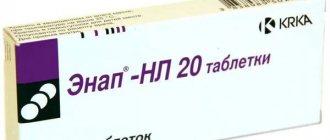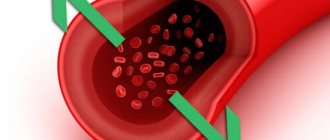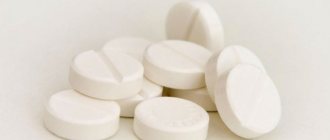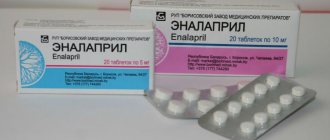Home | About us | Delivery | Advertisers | Login | Registration
- Medicines
- dietary supplementsVitamins
- Categories from A to Z
- Brands from A to Z
- Products from A to Z
- Medical equipment
- beauty
- Child
- Care
- Honey products appointments
- Herbs and herbal teas
- Medical nutrition
- Journey
- Making medicinesStock
Pharmacy online is the best pharmacy in Almaty, delivering medicines to Almaty. An online pharmacy or online pharmacy provides the following types of services: delivery of medicines, medicines to your home. Online pharmacy Almaty or online pharmacy Almaty delivers medicines to your home, as well as home delivery of medicines in Almaty.
my basket
Apteka84.kz is an online pharmacy that offers its customers medicines, medicinal and decorative cosmetics, dietary supplements, vitamins, baby food, intimate products for adults, medical equipment and thousands of other medical and cosmetic products at low prices. All data presented on the Apteka84.kz website is for informational purposes only and is not a substitute for professional medical care. Apteka84.kz strongly recommends that you carefully read the instructions for use contained in each package of medicines and other products. If you currently have any symptoms of the disease, you should seek help from a doctor. You should always tell your doctor or pharmacist about all the medicines you take. If you feel you need further help, please consult your local pharmacist or contact our GP online or by telephone.
© 2021 Pharmacy 84.
Dopegyt®
In rare cases, hemolytic anemia has developed in patients taking methyldopa. If signs of anemia appear, it is necessary to determine the hemoglobin concentration and hematocrit. If anemia is confirmed, the degree of hemolysis should be further assessed. If hemolytic anemia develops, therapy with Dopegit® should be discontinued. After cessation of therapy (with or without corticosteroids), remission is usually achieved quickly. However, in rare cases, deaths have been observed. Taking Dopegit® is contraindicated in patients with hemolytic anemia that has developed during therapy with this drug.
In some patients taking the drug Dopegit® for a long time, a positive Coombs test is determined. According to reports from various researchers, the prevalence of this reaction varies from 10 to 20%. A positive Coombs test is rarely observed during the first six months of therapy. If this phenomenon does not develop during the first 12 months of therapy, then its detection in the future is unlikely. The prevalence of a positive Coombs test is dose-dependent. This phenomenon is most rarely observed in patients taking the drug at a dose of 1000 mg/day or less. The Coombs test, which is positive while taking methyldopa, becomes negative several weeks or months after stopping drug therapy.
Before starting treatment, as well as at 6 and 12 months of therapy, it is recommended to perform a general blood test and a direct Coombs test.
Detection of a positive Coombs test in the past or during ongoing therapy is not in itself a contraindication to taking the drug Dopegit®. In cases where a positive direct Coombs test is detected while taking the drug, it is necessary to exclude the presence of hemolytic anemia in the patient and determine the clinical significance of this phenomenon.
Knowledge of previous positive Coombs test results is helpful in assessing blood for crossmatch before transfusion. If, when treating a patient taking the drug Dopegit®, there is a need for a transfusion, then before blood transfusion it is necessary to perform both a direct and indirect Coombs test. In the absence of hemolytic anemia, only the direct Coombs test is usually positive. A positive direct Coombs test does not affect the determination of blood group and the result of the cross-match test. If the indirect Coombs test is also positive, then difficulties may arise in assessing cross-compatibility. In such cases, consultation with a hematologist or transfusiologist is necessary.
In rare cases, the development of reversible leukopenia and granulocytopenia has been observed during methyldopa therapy. After cessation of therapy, the granulocyte count returned to normal. In addition, rare cases of reversible thrombocytopenia have been reported in patients taking methyldopa.
Some patients experienced fever during the first three weeks of drug therapy, which was sometimes accompanied by eosinophilia or increased activity of liver transaminases. In addition, taking methyldopa may be accompanied by the development of jaundice. Jaundice usually appears during the first 2-3 months of therapy. In some cases, cholestasis was confirmed against the background of jaundice. Very rarely, patients have developed fatal necrotizing hepatitis. Liver biopsies performed in several patients with liver dysfunction showed microscopic focal necrosis consistent with drug hypersensitivity.
Before starting to take the drug Dopegit®, at 6 and 12 weeks of treatment, as well as at any time when an unexplained fever occurs, it is recommended to determine the activity of “liver” transaminases and a general blood test with leukemia.
If fever, jaundice or increased activity of “hepatic” transmiases occurs, taking Dopegit® should be stopped immediately. If the appearance of these signs is associated with hypersensitivity to methyldopa, then after discontinuation of the drug, the fever will disappear and liver function tests will return to normal values. It is not recommended to restart the drug in such patients.
Patients with a history of liver pathology should be treated with Dopegit® with extreme caution.
Patients taking Dopegit® may require a reduction in anesthetic doses. If hypotension develops during general anesthesia, it is recommended to use vasopressor therapy. Adrenergic receptors do not lose their sensitivity during methyldopa therapy.
Some patients taking methyldopa experience peripheral edema and weight gain. These side effects can be easily managed with diuretics. If edema increases and symptoms of heart failure appear, therapy with Dopegit® should be discontinued.
Since methyldopa is removed from the body through dialysis, you may experience an increase in blood pressure levels after the session is completed.
In patients with bilateral cerebral vascular disease (cerebrovascular disease), taking methyldopa may be accompanied by involuntary choreoathetotic movements. In such cases, drug therapy should be discontinued.
The drug Dopegit® must be used with great caution when treating patients with hepatic porphyria and their close relatives.
Therapy with Dopegit® may affect the results of measuring the concentration of uric acid (using a phosphorus-tungsten reagent), creatinine (using alkaline picrate) and aspartate aminotransferase (colorimetric method) in blood serum. The effect of methyldopa therapy on spectrophotometric analysis of aspartate aminotransferase concentrations has not been reported.
During methyldopa therapy, false-positive results may be obtained for determining the content of catecholamines in urine using the fluorescent method, which complicates the diagnosis of pheochromocytoma. At the same time, methyldopa has no effect on the assessment of the concentration of vanillylmandelic acid in the urine.
In rare cases, the urine of patients taking methyldopa may darken when exposed to air.
This effect is due to the degradation of methyldopa and its metabolites.
While taking Dopegit®, you should not drink alcoholic beverages.
Pharmacological properties of the drug Dopegit
A drug that acts on the central mechanisms of blood pressure regulation. Penetrates the blood-brain barrier; metabolized to form alpha-methylnorepinephrine, which stimulates postsynaptic alpha-adrenergic receptors of brain stem neurons in the central nervous system, which leads to inhibition of the vasomotor center. The hypotensive effect with long-term use of the drug is mainly associated with a decrease in peripheral vascular resistance, while the minute blood volume does not change. Increases glomerular filtration rate and renal circulation, reduces the level of renin in blood plasma. It also causes a moderate decrease in cardiac output and heart rate. The effect of the drug appears 2 hours after use and lasts 24–48 hours. After oral administration, about 50% of the drug is absorbed into the gastrointestinal tract. Protein binding - up to 20%. Up to 10% of the dose taken is metabolized to form alpha-methyldopa and alpha-methylnorepinephrine. It is excreted mainly by the kidneys. About 70% of the absorbed drug is excreted in the urine in the form of methyldopa and its sulfoconjugates. With long-term use, the drug can accumulate in the body. The half-life is no more than 8 hours; with renal failure - increases. After oral administration, complete elimination of the drug occurs after 36 hours. It is removed by hemodialysis and peritoneal dialysis.
Use of the drug Dopegit
The dose is set individually. Typically, the starting dose of methyldopa for adults is 250 mg (1 tablet) 2-3 times a day for the first 2 days. Then the daily dose is increased by 250 mg (1 tablet) sequentially every 2 days until an adequate level of blood pressure reduction is achieved. If necessary, increase the dose to 1–1.5 g/day. The maximum daily dose for adults is 3 g (12 tablets). If necessary, children are prescribed Dopegit, starting with a dose of 10 mg/kg body weight (in 2–4 doses), then the dose is selected individually, depending on the effect obtained. The maximum daily dose for children is 65 mg/kg body weight.
Side effects of the drug Dopegit
From the cardiovascular system: peripheral edema, orthostatic hypotension, bradycardia. From the side of the central nervous system: headache, dizziness, weakness, drowsiness, rarely - parkinsonism syndrome, hallucinations. From the gastrointestinal tract: nausea, vomiting, dry mouth, diarrhea, constipation, pancreatitis, liver dysfunction, jaundice, colitis. From the hematopoietic system: rarely - leukopenia and thrombocytopenia, autoimmune hemolytic anemia. From the endocrine system: gynecomastia, galactorrhea, decreased libido, impotence. Allergic reactions: exanthema. Rarely - fever, myalgia, arthralgia, lupus syndrome.
Drug interactions Dopegit
Caution should be exercised when taking Dopegit in combination with any of the following drugs:
- levodopa, levadopa/cardipopa - may enhance the antihypertensive effect;
- drugs belonging to the group of MAO inhibitors (for example, phenelzine, transcipromine) - may increase hypotension or hypertension with psychomotor agitation;
- drugs for the treatment of patients with depression (for example, tricyclic antidepressants) - decreased antihypertensive effect, the appearance of tachycardia, agitation, headache;
- diuretics, apressin, calcium antagonists, ACE inhibitors, β-adrenergic receptor blockers, α-adrenergic receptor blockers or other antihypertensive drugs, as well as anesthetics enhance the effect of Dopegit;
- digoxin - possible appearance of bradycardia, asystole;
- Iron supplements weaken the effect of Dopegit;
- indomethacin and other NSAIDs reduce the antihypertensive effect of Dopegit;
- lithium - increased toxicity of lithium is possible;
- alcohol and drugs that cause central nervous system depression increase the depressive effect;
- anticoagulants derivatives of coumarin and indadione increase the anticoagulant effect;
- anorexigenic drugs weaken the effect of Dopegit;
- sympathomimetics dopamine, mesaton enhance the effect of Dopegit.
The combination of Dopegyt with tranquilizers increases the antihypertensive effect. With urine alkylation, the concentration of Dopegyt in the blood increases, with acidolization, the effect decreases. The use of Dopegit in combination with any of these drugs may change their effect on the body or be dangerous to the body.





